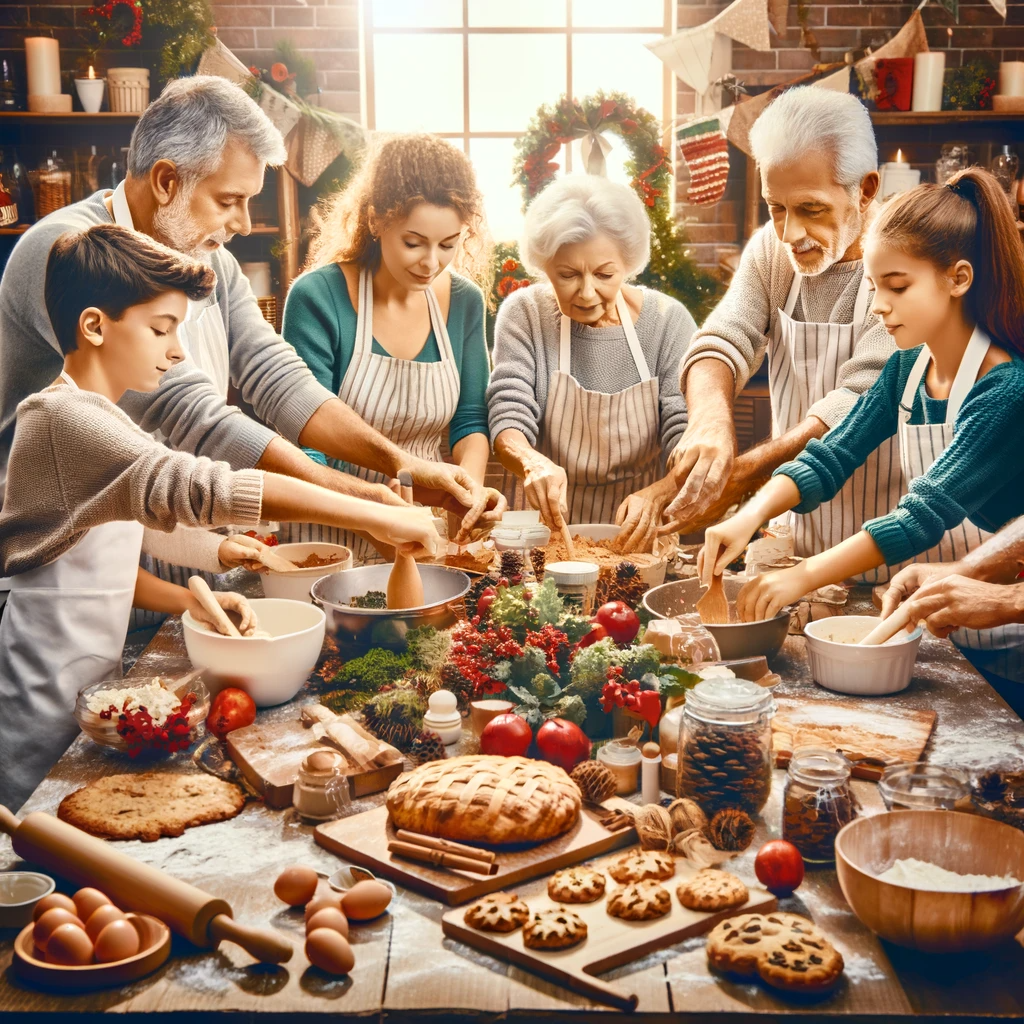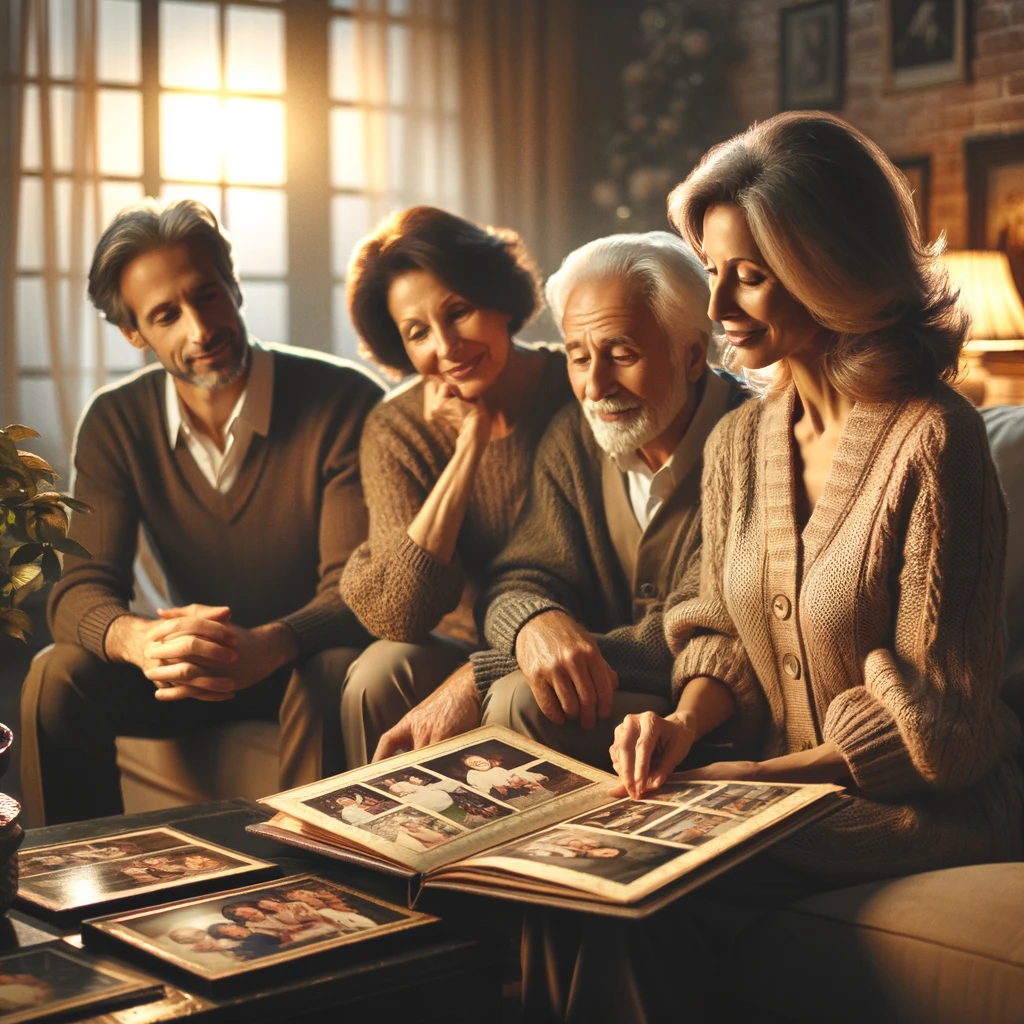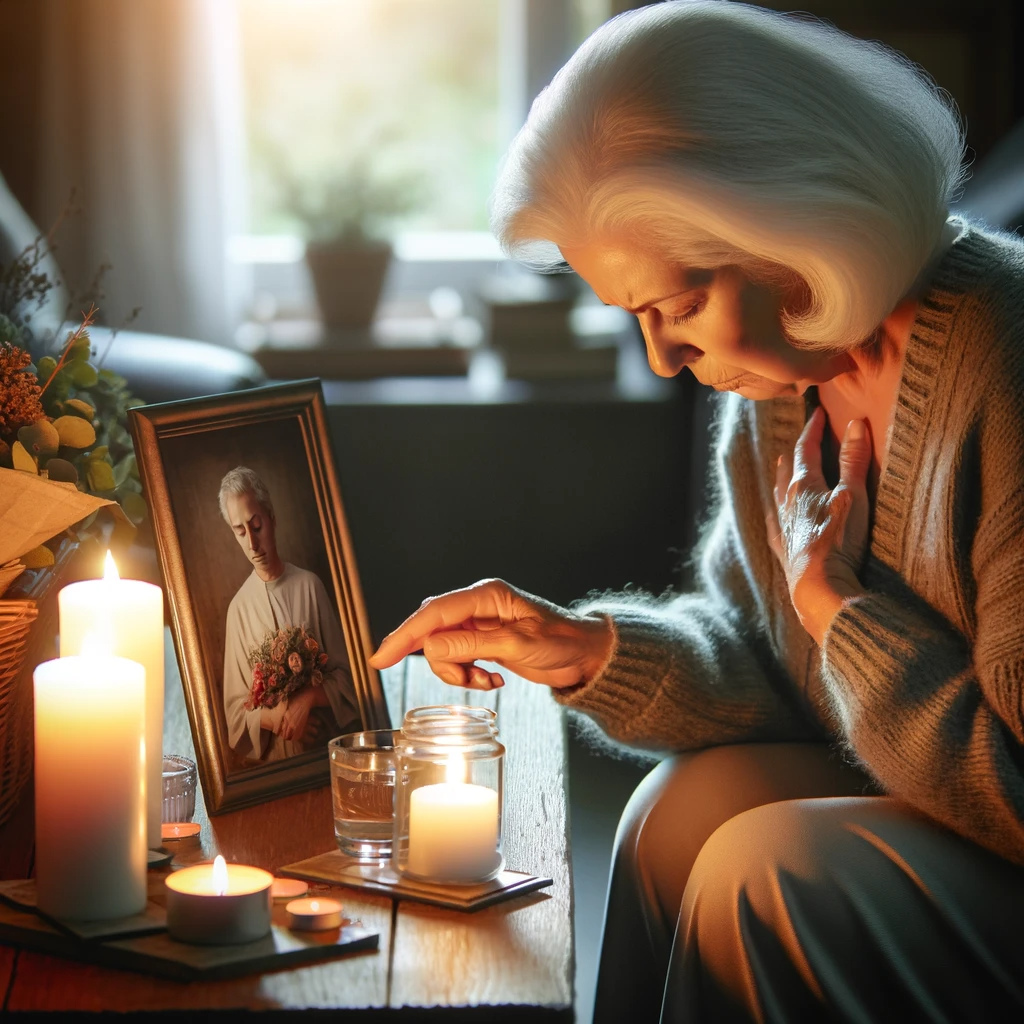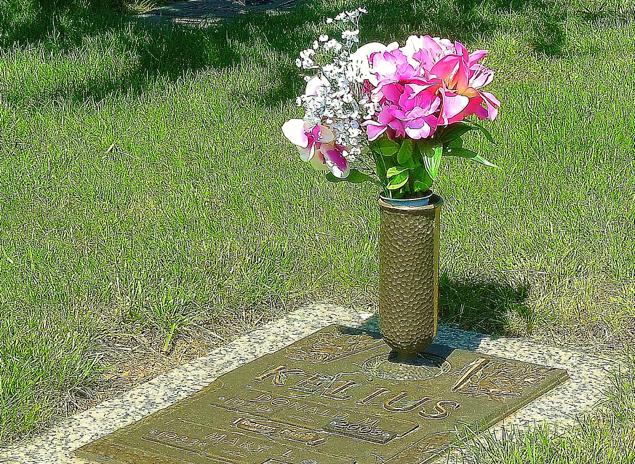Navigating the Waves of Grief During the Holidays: A Compassionate Guide
Explore the complexities of grieving during the holidays in our compassionate guide. Discover strategies for coping, personal stories, and supportive spaces like the Grief Recovery Room on CaregiverRelief.com. Find solace, understanding, and hope in navigating holiday grief.

Grief at the Holidays
For those enduring the heartache of loss, the holiday season, often painted as a time of joy and unity, can present a starkly contrasting experience. This period, typically filled with festive decorations and gatherings, can amplify the void left by the absence of a loved one. Grieving at the holidays is a complex journey, where the external merriment often deepens the internal sorrow.
My Journey with Grief at the Holidays
At 18, as a freshman in nursing school, I encountered this profound grief firsthand. My world was upended in the winter of 1971. Just before the holidays, my mother, Louise, after a long battle with lung cancer, received news that filled our family with hope: she had beaten cancer. The relief and joy were overwhelming, and she hurried to share this wonderful news with me at the nursing school, eager to start our holiday celebrations and finish our Christmas shopping together.
But fate had a cruel twist in store. As she left her oncologist's office, a sudden, sharp pain signaled a tragic turn – a pulmonary embolism. Rushed to intensive care, where I was summoned from my class, my mom, amidst her own suffering, thought only of her family. She handed me a list, asking me to complete our Christmas shopping, concerned about my siblings in what were to be her final moments. When I returned, heart full of hope and hands full of gifts, I was met with the devastating news: my mother had passed away.
My Holiday Grieving
That day, 52 years ago, forever changed how I experience the holidays. Each festive season since has been tinged with a lingering sadness, a poignant reminder of that loss. This personal journey through holiday grief has taught me an invaluable lesson: grief takes as long as it needs to. The people we lose, who leave indelible marks on our lives, also leave voids in our hearts that never fully heal. They are not just memories; they are part of our very fabric, shaping our experiences and our responses to times of celebration and sorrow.
Through sharing this story, I hope to offer understanding and solace to those who find themselves navigating the turbulent waters of grief during the holidays. It's a time when the world expects cheer, but for many, it resurrects pain and longing. This guide is a recognition of those complex emotions and a reminder that it's okay to feel them, deeply and truly. As we traverse this season, let's remember that it's okay to mourn, to reflect, and to find our own ways of honoring those we miss, especially during a time when their absence feels most profound. Grief, especially during the holidays, is a journey without a clear destination, but along the way, there is room for support, understanding, and moments of peace amidst the pain

Understanding Holiday Grief
The holiday season, with its festive lights and celebratory gatherings, is traditionally seen as a time of joy and warmth. However, for those who are grieving, this period can amplify feelings of loss and sorrow. The stark contrast between societal cheer and personal grief becomes more pronounced, and the psychological aspects of grief become more complex and challenging.
My Journey With Grief Around the Holidays
Holiday grief is a unique experience, often intensified by the memories and traditions associated with the season. When the world around us is adorned with signs of happiness and familial togetherness, the absence of a loved one can feel even more profound. The holidays can trigger memories of happier times spent with the departed, making their absence all the more palpable and painful. For many, this time of year is a poignant reminder of what — and who — they have lost.
In 2015, the painful reality of holiday grief struck my family. My oldest son, Geoff, a dedicated Korean linguist in the Army, suffered from Complex Regional Pain Syndrome (CRPS), also known as Reflex Sympathetic Dystrophy (RSD) — a severe and relentless pain condition. His struggle was compounded by the substandard care provided by the military medical system, leading to the development of PTSD. After eight years of battling for appropriate care, Geoff was sent home alone from the VA behavioral health unit. Tragically, on September 15, 2015, overwhelmed by his circumstances, he completed suicide. His loss was an unimaginable blow to our family, particularly during the holidays, which became a time of profound sadness and a stark contrast to the expected joy and family togetherness.
The loss of an adult child to suicide is an indescribable tragedy, leaving a void that feels insurmountable, especially during a period that emphasizes family and celebration. The holidays, once a time of happiness, became a period marked by a deep sense of disconnection and grief. While others rejoiced, our family grappled with the absence of Geoff, feeling out of place amidst the festive atmosphere. This experience is a somber reflection of the struggles many face during the holiday season — an internal battle between societal expectations of happiness and the reality of personal loss.
Moreover, the journey of a family caregiver, like mine, is often laced with continuous grief. As caregivers, we experience a profound sense of sadness and anticipatory grief, always aware that any holiday could be the last with our loved one. This form of grieving starts long before the actual loss occurs, as we witness the daily struggles and pain of our family member. The emotional toll of caregiving is frequently overlooked, yet it is a significant aspect of holiday grief. The joyous season becomes a period of reflection on the hardships faced and the relentless efforts to provide care and support.

The Psychological Impact of Holiday Grief is Complex
It can manifest as feelings of loneliness, depression, anxiety, or even guilt for not being able to partake in the festive spirit. These emotions are often accompanied by physical symptoms like fatigue or changes in appetite, making the holidays a challenging time for those in mourning. It's important to recognize and validate these feelings, understanding that grieving during the holidays is a natural response to loss.
After the loss of my mother, I found that around November, around Thanksgiving, I would have an inexplicable sense of sadness and loss. Those feelings became a constant companion during the holidays. Even after I have my sons. I missed my mom.
Facing the loss of Geoff,that first holiday season, further compounded my feelings of grief and loss.
The story of losing my mom and my son, Geoff, and the ensuing grief during the holidays is a stark reminder. Grief knows no timetable and respects no calendar. It lingers and resurfaces, especially during times when society expects us to be at our happiest. Recognizing and acknowledging this grief is crucial, not only for those experiencing it but also for those around them, to foster a more understanding and supportive environment during the holiday season.
Common Challenges of Grieving Through the Holidays
The holiday season, often envisioned as a time of joy and communal celebration, can pose significant challenges for those grappling with grief. For many, the holidays are not just about festivities but also a period of heightened emotional struggle, marked by the pain of loss. As we delve into this topic, it's essential to recognize and validate the myriad challenges that those who are grieving may face during this time.

Facing Family Traditions
One of the most poignant aspects of holiday grieving involves family traditions. Holidays are typically laden with rituals and customs, many of which are deeply intertwined with memories of the loved ones who have passed. For someone in mourning, these traditions can serve as stark reminders of their loss. There's an inherent struggle in deciding whether to uphold these traditions, modify them, or create new ones. The thought of continuing a tradition without the presence of a loved one can be overwhelming, often evoking a sense of emptiness and sorrow. On the other hand, changing or foregoing these traditions can also bring feelings of guilt or betrayal, as if one is leaving behind the memory of the deceased. Navigating this delicate balance is a significant challenge, forcing individuals to confront their grief head-on during a time that used to be filled with joy and togetherness.
For me, I tried to celebrate the way my mom did. I baked dozen of traditional holiday cookies, just like my mom baked. My son, Geoff, enjoyed his grandmother holiday persimmon pudding. In his honor, I make it every year. It makes me feel connected to him. The cooking , baking and decorating are always in honor of my mom. She loved the holidays and made such an effort to make it he best possible experience for my family.
Feeling Isolated in Grief
Isolation is another common challenge during the holidays. While others are engaging in celebrations and social gatherings, those who are grieving might feel disconnected and alone in their sorrow. This isolation can be exacerbated by the perception that everyone else is happy and enjoying the season, leading to feelings of being misunderstood or out of place. The joy and excitement that permeate the air can feel jarring and even alienating to someone in the throes of grief. Furthermore, there may be a reluctance to express feelings of sadness for fear of dampening the festive mood for others, which can lead to further emotional seclusion.
I always feel out of step with others during the holidays. It is the most difficult time for my family caregivers I support. So many feel that they are missing out on life, as they provide care for their family member. Social media has a way of making life look like one happy time. Holiday blues are real and experienced by many.

Coping with Memories
The holidays are inherently reflective, often prompting memories of past celebrations and time spent with loved ones. For someone grieving, these memories can be a double-edged sword — they can bring comfort and a sense of connection to the departed, but they can also intensify the pain of loss. The act of remembering can trigger a complex mix of emotions, from fond nostalgia to profound sadness. Coping with these memories, especially during a time when they seem to be ever-present, is a formidable challenge. It involves navigating a delicate balance between honoring the past and finding a way to move forward.
Navigating Emotional Turbulence
The holiday season can also bring a rollercoaster of emotions for those who are grieving. Feelings of sadness, anger, guilt, or even momentary joy can arise unpredictably, often triggered by the smallest reminders. This emotional turbulence can be disorienting and exhausting, making the holidays particularly difficult to navigate. It requires immense emotional strength and resilience to face these fluctuating feelings, particularly in a social context where there is pressure to appear happy and festive.
Grieving during the holidays is fraught with challenges that are deeply personal and often misunderstood. Those who are mourning during this season face a complex landscape of emotional, social, and psychological hurdles. It's important for both individuals experiencing holiday grief and those around them to acknowledge and validate these challenges. Recognizing that grief does not take a holiday break is the first step in providing support and understanding to those who are navigating this difficult journey.
Strategies for Coping with Grief During the Holidays
Coping with grief during the holidays is a delicate and deeply personal process. It requires patience, self-compassion, and sometimes, a redefinition of what the holiday season means to you. Here, we explore practical strategies and tips to help manage the unique challenges of grieving over the holidays.

Prioritize Self-Care
Self-care is crucial during the holiday season, especially for those who are grieving. This can include ensuring adequate rest, eating nutritious meals, and engaging in physical activity, which can be therapeutic in managing stress and emotional pain. Self-care also means allowing yourself to feel your emotions without judgment. Whether it's sadness, anger, or a fleeting moment of joy, giving yourself permission to experience these feelings fully is a vital part of the grieving process.It is not selfish to prioritize taking care of yourself. It is necessary to lessen the pain of loss.
Setting Boundaries
Setting boundaries is essential to protect your emotional well-being. It's okay to say no to certain events, traditions, or social gatherings if you feel they may be too overwhelming. Communicate your needs and limits to family and friends. Let them know how they can support you during this time. Remember, setting boundaries is not a sign of weakness; it's a necessary step in managing your grief and taking care of your emotional health.
Create New Traditions
While honoring past traditions is important, creating new ones can also be a healing part of the grieving process. New traditions might include volunteering, taking a trip, or starting a new holiday project. These can provide a sense of renewal and offer a way to commemorate your loved one in a different light. New traditions can coexist with the old ones, providing a balance between honoring the past and embracing the present.
I spent last Christmas serving dinner to those in need. It took my mind off my own grief. I met the most amazing people. It made me feel so much better, I want to do this every year.
Honor Your Loved One
Finding ways to honor your loved one can provide comfort. This could be as simple as lighting a candle in their memory, sharing stories about them, or incorporating their favorite holiday activities into your celebration. Honoring their memory allows you to keep their spirit a part of the holidays.

Seek Support
Do not hesitate to seek support. This could be from friends, family, support groups, or professional counseling. Speaking with others who understand your experience can be incredibly validating and helpful. Support groups, either in-person or online, can connect you with others who are experiencing similar feelings of loss.
Be Flexible
Flexibility is key during the holidays when you're grieving. Your feelings might change from day to day or even moment to moment. Be open to adjusting your plans based on how you're feeling. If you need to step away from a gathering or change your mind about attending an event, allow yourself that flexibility.
Express Your Feelings
Whether it’s through writing, art, music, or conversation, expressing your feelings can be a powerful way to cope with grief. Journaling, for instance, can provide an outlet for your thoughts and emotions, helping you process your feelings in a safe, private space.
Remember Self-Compassion - Be Gentle with Yourself
Lastly, practice self-compassion. Grieving is not a linear process, and the holidays can amplify emotions in unexpected ways. Be kind to yourself, recognizing that grieving is a journey, one that does not have a fixed timeline or a right way to navigate.
Coping with grief during the holidays is a deeply personal experience, and what works for one person may not work for another. It's important to find what resonates with you and allows you to honor your feelings while also taking care of your well-being. Remember, it's okay to seek joy and connection during this time, just as it's okay to feel sadness and loss. The holidays after a loss are different, but with time, support, and self-care, they can still hold moments of peace and meaning.
Personal Stories and Experiences: Navigating Grief During the Holidays
Grieving through the holidays can feel like trying to navigate a ship through a stormy sea. The waves of emotions are unpredictable and often overwhelming. In sharing personal stories and experiences, we find not only a sense of solidarity but also glimpses of how others cope with their grief during this challenging time.

One Caregiver's Story
Alycia Huard shares her poignant experience that many can relate to:
"Fa la la! Happy Holidays! Deck the halls, stuff the turkey, and bake the pies. Set the table; decorate every corner of the house. Smile! This is the picture-perfect image of the holiday season, but it's far from the reality many of us face, especially when gripped by grief and depression."
Alycia recalls her mother's vibrant spirit, especially during the holidays. She was the epitome of holiday cheer, transforming their home into a festive haven. But in January 2008, Alycia's world turned upside down. Her mother passed away when Alycia's daughter was just nine months old, a time when Alycia was caring for both her newborn and her ailing mother. The following holiday season was a harsh reminder of her loss.
"The first few months were the hardest," Alycia recounts. "Grieving while caring for a baby and supporting my dad, who had lost his partner of 47 years, was a journey through intense emotional pain."
As the holidays approached, Alycia found herself paralyzed by the thought of continuing holiday traditions without her mother. "I used to love baking, but suddenly, I couldn't bring myself to even start. It felt pointless, overwhelming. That year, my husband took over the baking."
Years passed, and Alycia moved back into her childhood home to care for her father diagnosed with Alzheimer's. The house, filled with memories of her mother, became a constant reminder of her loss. "I couldn't bake anymore. Not even the simplest cookies. It was as if the joy and love that used to be part of my baking had vanished."
Grief, Alycia explains, changes how you experience the world. "Holidays are especially tough. The festive atmosphere, the traditions, they all remind me of what I've lost. My daughter feels it too. She misses the bonding we used to have over baking."
Despite the pain, Alycia strives to create new memories for her daughter and father. "It's been seven years since my mom passed. The grief is still there, but I've learned to navigate it. I focus on making the holidays special for my daughter and father, even if it means changing how we celebrate."
A Testament to Resilience
Alycia's story is a testament to the resilience and adaptability of the human spirit in the face of loss. "Grief is a complex emotion, intertwined with our memories and relationships. It's important to honor these feelings, to give them space, even as we try to move forward. The holidays will never be the same, but we find new ways to embrace them, for the sake of those we still have with us."
This narrative and others like it offer a window into the diverse experiences of holiday grief. Each story is unique, yet there's a common thread of endurance, adaptation, and the ongoing journey to find moments of peace amidst the sorrow. As we share these stories, we realize we're not alone in our grief, and there's strength in our shared experiences.
Conclusion: Embracing Hope and Support During Holiday Grief
As we reach the conclusion of this compassionate exploration into grieving at the holidays, it's important to recognize that while the journey of grief is deeply personal, you are not alone in it. The holidays can amplify feelings of loss, but they can also be a time for reflection, connection, and even healing, in its own unique way.
Grief, especially during the holidays, can feel isolating, but there are places and communities where support and understanding are readily available. One such space is the Grief Recovery Room on CaregiverRelief.com, a sanctuary created for those who are navigating the complex emotions of loss. Here, you can create a memorial page for your loved one, a beautiful way to honor their memory. This space allows you to express your grief, share your stories, and connect with others who understand the profound impact of loss. It's a reminder that in sharing, we can find relief, even if it's just a little, from the pain of grief.
Grief A Testament to Love
Additionally, the Caregiving Story section on the site offers a platform to express yourself and share experiences with a community that empathizes and supports. Sharing your journey can lessen the burden of grief, and hearing others' stories can be a source of comfort, showing that you are not alone in your feelings.
As we move through the holiday season, it’s important to remember that grief is a testament to love. It's okay to feel a range of emotions, from sadness to moments of joy, and everything in between. Allow yourself the grace to experience the holidays in a way that feels right for you, whether that means upholding traditions, creating new ones, or simply taking a moment to remember.
Grief may never fully disappear, but with time, support, and self-compassion, the weight of it can become more manageable. Remember, it's okay to seek help, to share your story, and to lean on others. As you navigate this holiday season, may you find moments of peace, connection, and hope amidst the challenges of grief. Your feelings are valid, your loss is acknowledged, and your journey through grief is honored.
Please visit the Grief Recovery Room to Share Your Memories
Share Your stories with other Caregivers
You might also like this article:







